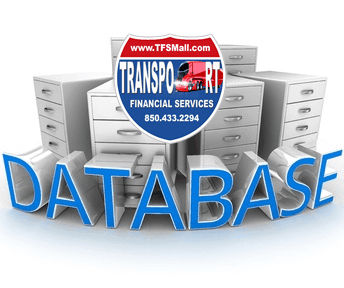The US shipping community received a reprieve Monday from worst-case potential disruption caused by an electronic logging mandate for truck drivers that takes effect Dec. 18. An association representing state law enforcement agencies said it would postpone putting drivers out-of-service for not complying with the mandate until April 1, 2018.
“Beginning April 1, 2018, inspectors will start placing commercial motor vehicle drivers out of service if their vehicle is not equipped with the required device,” the Commercial Vehicle Safety Alliance (CVSA) said in a statement. The April 1 “effective date” for applying electronic logging device (ELD) out-of-service criteria will give truckers and shippers time to adjust to the rule with “minimal disruption to the delivery of goods.”
Starting Dec. 18, “roadside enforcement personnel will begin documenting violations on roadside inspection reports and, at the jurisdiction’s discretion, will issue citations to commercial motor vehicle drivers operating vehicles without a compliant ELD,” CVSA said in a statement. But carriers in effect will have an additional three-and-a-half months to install ELDs.
The CVSA’s action alleviates fears that thousands of truckers could be placed out of service for not having ELDs starting Dec. 18, stranding freight a week before Christmas. That holiday logistical nightmare would likely have spiked spot market rates as trucks were dispatched to rescue stranded cargo and drivers. Concern about capacity shortages is already rising.
The Aug. 28 announcement clarifies how events are likely to unfold as the mandate takes effect and gives motor carriers struggling to prepare for the requirement, which effects approximately 3 million drivers, more breathing room. “Phased-in” enforcement of the mandate also may blunt attempts to delay implementation of the rule on Capitol Hill.
“The December deadline for this important safety regulation was established by the Federal Motor Carrier Safety Administration [FMCSA] in 2015 following a decade of regulatory inquiry, study, litigation, and ultimately a congressional mandate,” CVSA executive director Collin B. Mooney said in a letter to FMCSA Deputy Administrator Daphne Jefferson.
He expressed “strong opposition” to any delay in the mandate. “Despite what opponents of the mandate may argue, the enforcement community is ready to begin enforcement of the requirement on Dec. 18,” Mooney said.
In short, truckers may receive a citation (and associated fine) if they do not have ELDs installed and operating Dec. 18, but they will not be ordered off the road and out-of-service. Information on companies and drivers that receive citations could be used by regulators to identify and investigate carriers suspected of not complying with the mandate.
Starting April 1, however, truck drivers that do not have ELDs will not drive away from a roadside inspection. They will be placed out-of-service by the state regulatory officials, roadside inspectors, and police officers represented by the CVSA, using its North American Out of Service Criteria. Someone else will have to pick up the freight being hauled by that out-of-service driver.
The electronic logging mandate is expected to have a far-reaching effect on US businesses and domestic and international supply chains, starting with a potential spike in port drayage costs. Truckload carriers and owner-operators may feel the brunt of the impact, but the advent of the ELD era could affect supply chain strategies that extend well beyond trucking procurement.
As Dec. 18 draws closer, many smaller trucking companies reportedly are far from ready to switch from paper logbooks to ELDs. A variety of groups, led by the Owner-Operator Independent Drivers Association, are seeking either an outright delay of the regulation or exemptions for specific types of trucking operations, such as drivers of rental trucks.
Companies that have not yet placed orders for ELDs may face shortages of the devices as the Dec. 18 deadline approaches. “The vendors don’t have barges sitting off the coast loaded with thousands of these devices,” John Seidl, a transportation consultant with Integrated Risk Solutions and former roadside inspector, said during an Aug. 3 JOC.com webcast.
Logistics executives, including C.H. Robinson Worldwide CEO John Wiehoff, have expressed concern that implementation of the ELD mandate in December could get “very messy.” The CVSA decision to phase in enforcement should alleviate the threat of an immediate pre-Christmas capacity snap and make a more gradual tightening of capacity over the next year more likely.
“CVSA member jurisdictions have used this phased-in approach in the past when implementing a significant change in regulatory requirements,” Mooney said in his letter. He said the CVSA board and FMCSA agreed the two-phase enforcement strategy would be the best approach and would “promote a smoother transition to the new ELD requirement.”
However, truckers, fleet operators, brokers, and shippers should not delay compliance plans. Those that do not take advantage of the “wiggle room” the phased-in approach affords may find themselves in a tight spot April 1.







